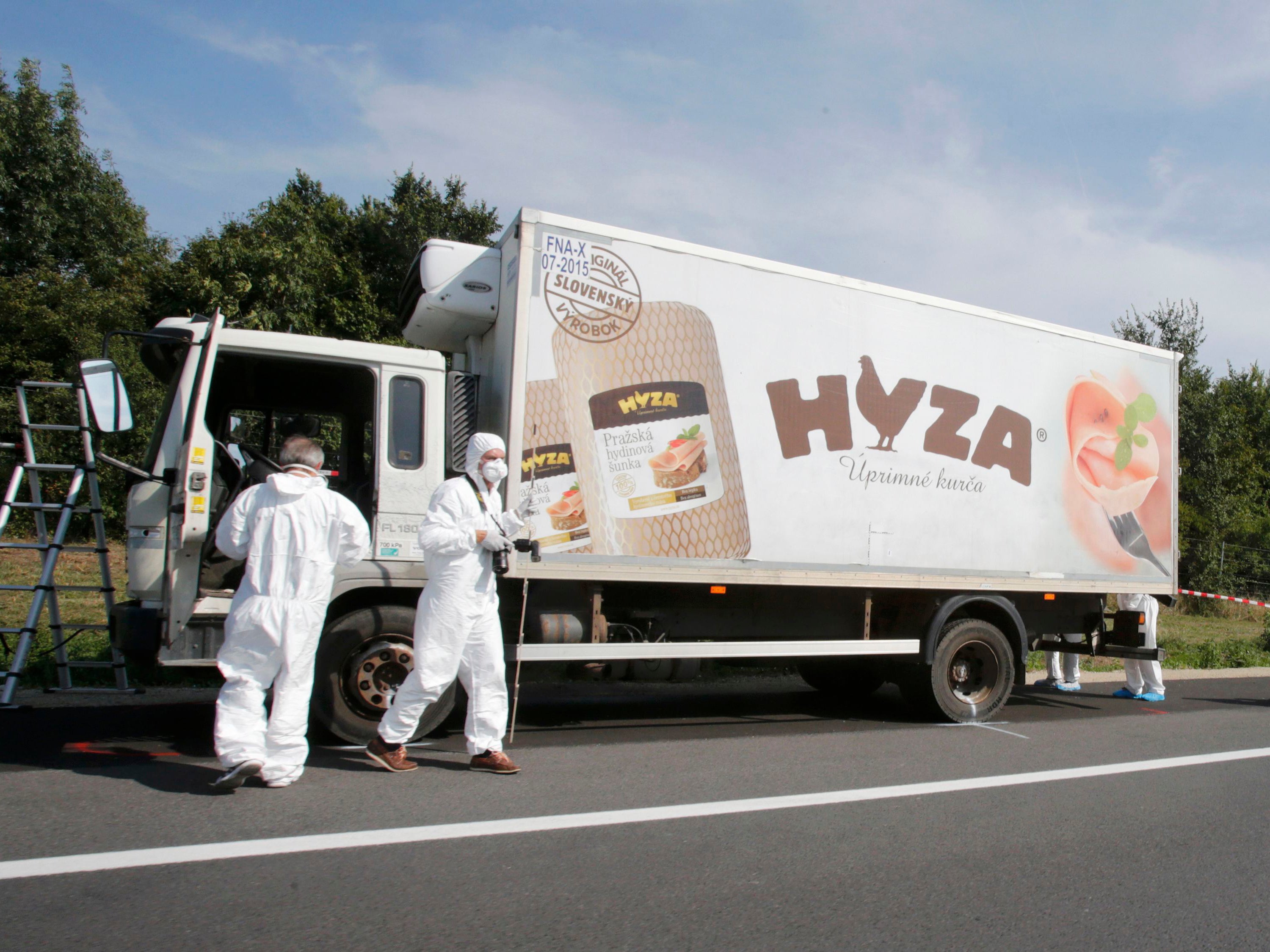The EU’s phoney war on people smugglers is costing the lives of desperate migrants
Allowing vulnerable people to drown in the Mediterranean or asphyxiate in the holds of ships and lorries is an affront to European values


Just how bad does the migrant crisis have to get before the European Union’s political leaders start showing some leadership?
This week’s Vienna summit on migration in the Western Balkans was the latest lost opportunity. Meeting against the backdrop of 2,400 migrant deaths in the Mediterranean, the gruesome discovery of 70 decomposing migrant bodies in a lorry on an Austrian motorway, and human suffering on an epic scale across the EU’s borders, the summit produced expressions of anguish, a tiny dollop of humanitarian aid, and commitments to strengthened border controls.
The EU’s response to the migrant crisis has followed a gloomily predictable trajectory: while a criminally under-funded search-and-rescue operation saves lives in the Mediterranean, European governments wage a war of words against people smugglers. They ramp-up spending on fences and border-controls, and issue warnings of deportation for the ‘swarms’ of ‘irregular’ migrants seeking entry to Europe.
All of which fuels a moral panic over refugees and deflects attention from the debate that needs to happen. That debate is about forced human displacement on a scale unwitnessed since the Second World War – and about an asylum system broken beyond repair.
The war on people smugglers is a phoney war. There is no doubting the criminality of human trafficking gangs. Yet the EU’s restrictive border policies are driving up their profits.
One tragic incident helps to illustrate the real challenge facing Europe. Last April, over 500 migrants drowned off the coast of Libya when their boat collided with a container ship and capsized. The victims included nationals from Syria, Eritrea and Somalia fleeing war, persecution and human rights violations. They were among the estimated 60 million people in the world forcibly uprooted, one third of them living as refugees.
These are the real people seeking entry to a Europe they believe might offer security, safety and a chance to rebuild their lives. Data from Frontex, the EU border agency, shows that the largest groups seeking entry to the EU through the Western Balkans and Mediterranean routes are Syrians, followed by Eritreans and Afghans (many of them refugees ordered to leave Iran).
To put the figures in perspective: while countries in Europe agonise over a half-baked Commission plan to resettle 40,000 refugees and the UK media generates a moral panic over 5,000 migrants in Calais, over 4 million Syrian refugees are living in neighbouring states. Ethiopia, one of the poorest countries in the world, is hosting over 1 million refugees from Eritrea, Somalia and South Sudan.
Of course, not all migrants are refugees. The lines between poverty and forced displacement are often blurred. But the vast majority of those seeking entry to the EU come from countries where there is a reasonable presumption of legitimate asylum claims.
Europe’s inept response to the refugee crisis has created a sense of fatalism. Calls for higher fences, the dismantling of the EU’s free-movement provisions and forced repatriation have a populist appeal which has been exploited by xenophobes of different stripes. These are ultimately futile measures that will do nothing to tackle the displacement crisis driving migration.
There is an alternative. Compare the EU’s migration summits to the response, some 40 years ago, to the boat-people crisis that followed the end of the Vietnam War.
Then as now, a major war and fear of persecution confronted an entire region with unprecedented flows of migration. By the end of 1979, more than half a million people had fled Vietnam. Overwhelmed regional governments in Thailand, Malaysia and the Philippines, none of whom recognised the UN’s refugee convention, adopted a policy of pushing back boats. People smugglers flourished, with human traffickers chartering steel-hulled ships that were dumped in territorial waters. Up to 200,000 people may have drowned.
International cooperation brought the crisis to an end. Securing the 1989 deal between 70 governments was not easy. Margaret Thatcher, then UK prime minister, famously opposed resettling to Britain the Vietnamese boat-people who had arrived in Hong Kong. Just like their EU counterparts today, regional governments feared being swamped by refugees. What made a resolution of the crisis possible was a multilateral approach based on shared responsibility, shared values and, in terms of brute realpolitik, recognition that there was no credible alternative.
Contrasts with today’s tragedy are at once painful and instructive. Around 70 per cent of Syrian refugees in Lebanon are now living below the poverty line. Less than half of refugee children in the region are in school – and there is a growing epidemic of child labour. Health provision is limited. Despite the urgent need for finance and constant appeals, less than one-third of UNHCR’s Syria appeal is funded.
More effective aid and support for refugee hosting countries could provide hope and opportunity, partially stemming the flow of migrants heading for EU borders. Faced with abject poverty and a future that offers no prospect of security, employment or education for their children, Syrian refugees are doing what any EU citizens would do in their circumstances – moving to try and find a better future. The same story could be told for refugees fleeing violence and human rights abuse in South Sudan, northern Nigeria, Mali, Eritrea and Somalia.
Whatever the complexity of the legal, economic and political challenges, allowing vulnerable migrants to drown in the Mediterranean or asphyxiate in the holds of ships is an affront to European values.
The deeper challenge is to transform the EU’s asylum policy. The so-called Dublin regulation, which requires point-of-entry countries to process asylum claims, is collapsing under the weight of its own irrelevance – and it needs to be replaced with a coherent alternative. More urgent still, the EU needs to dramatically increase the number of asylum claims it processes and the number of refugees it resettles.
Conducting a rhetorical war against people smugglers ticks the boxes for politicians seeking populist appeal. But the victims in that war are not the people traffickers but the people forced into their hands by the policy inertia gripping the EU’s leaders.
Join our commenting forum
Join thought-provoking conversations, follow other Independent readers and see their replies
Comments